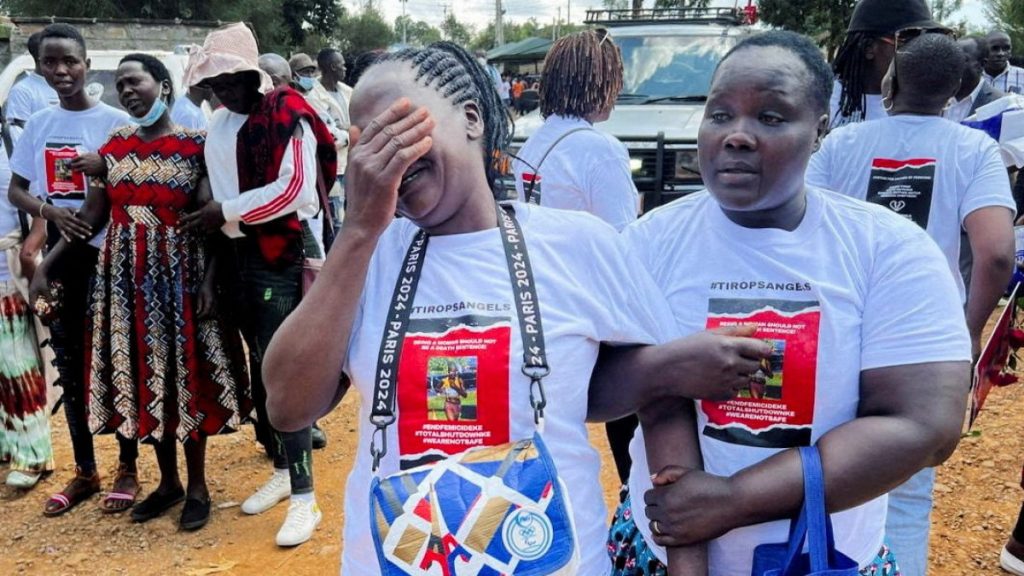The body of murdered Olympian Rebecca Cheptegei, who was tragically killed by her partner in Kenya, has begun its journey back to her family home in Uganda. Activists in Eldoret, Kenya, joined the march to call for an end to gender-based violence in the region. Cheptegei, a 33-year-old athlete, was attacked by her Kenyan partner, who poured petrol over her and set her on fire. She succumbed to her wounds on September 5, just days after competing in the women’s marathon at the Olympics in Paris.
Her funeral is planned for Saturday in Bukwo, Uganda, where her family resides. Cheptegei’s uncle, Tony Sabila, described her as a pillar to the family and expressed his deep sadness over her loss. As the body passed through Eldoret, activists lined the road, carrying white and red roses and wearing shirts with her image. They held signs calling for an end to violence against women and highlighting that being a woman should not be a death sentence.
Cheptegei is the third athlete to have died in Kenya due to gender-based violence since 2021, sparking global tributes and outrage. Her attacker, Dickson Ndiema Marangach, also died from severe burns sustained during the incident. Reports revealed that Cheptegei’s daughters and sister witnessed the brutal assault outside their home in Endebass. Her father indicated that the attack stemmed from a property dispute between Cheptegei and Marangach, who had bought petrol and hid in a chicken coop before carrying out the heinous act.
The United Nations condemned Cheptegei’s violent murder, emphasizing that gender-based violence is a prevalent human rights violation worldwide. In Kenya, 41 percent of married women have experienced physical violence, highlighting the urgent need for action to combat such atrocities. The UN reported that at least 500 women and girls have been murdered in Kenya since 2016, with a significant number of cases involving intimate partners or family members. Kenya’s sports minister echoed the sentiment, stating that Cheptegei’s death serves as a stark reminder of the ongoing battle against gender-based violence.
Global figures from UN Women Africa indicate a concerning trend of increasing reports of violence against women and girls, with 89,000 cases of murder recorded in 2022 – the highest number in two decades. More than half of these victims were killed by intimate partners or family members, underscoring the urgent need for systemic change to protect vulnerable individuals. Cheptegei’s tragic death has reignited calls for greater awareness, advocacy, and policy interventions to address the root causes of gender-based violence and ensure the safety and well-being of women and girls everywhere.













